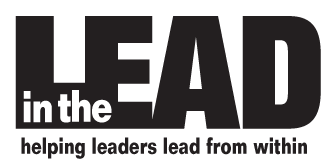Are You a Successful Influencer?
Whatever it is, the way you tell your story online can make all the difference.
Most of us spend more time influencing and persuading than we think. Daniel Pink, the author of six books, has written extensively in an earlier book about influence and persuasion. He argued that out of every hour in our workday, an individual can spend as much as 41% of their time persuading others to do something or support something. That’s about 24 minutes in every hour! He suggests that this persuading and influencing requires the other person to give up something of value, such as their attention, time, or effort, in exchange for what you offer. Therefore, your challenge as a leader is to figure out the value equation in what you are asking for. What does the other person, in many cases, your manager, gain by supporting, championing or engaging in your idea or position?
Successfully influencing occurs by articulating the value of the work of your team and why it matters to the larger organization. Influence allows your ideas to get heard and your team to gain credibility. Teams and individuals with higher credibility gain access to more interesting work and often more resources. Leaders who are effective at influencing others:
Commit to building rapport with others over time in ways that are wide and deep in the organization, while looking for future collaborations.
Use different influencing tactics for different people.
Detect opportunities for adjustments, changes, and innovations to build and broaden relationships and foster influence channels.
Collect both internal and external facts to support their point of view and recommendations.
Build relationships in advance with key decision makers before their support is needed.
Understand their facts deeply and can answer questions from others when challenged in an engaging, non-defensive manner.
Influence is the ability to get others to freely endorse or embrace your ideas and initiatives, whether you have power or not. Ethical influence is bilateral. The one seeking to influence another must be open to being influenced. It involves a conversation, a dialogue that acknowledges individual differences and factors in the relationship or environment. Successful influence often involves multiple conversations and utilizes a mixture of techniques. Successful influence usually demonstrates empathy. Great influencers aren’t imposing their views on someone else; they’re listening to the concerns of others and connecting your ideas to meet their needs. Finally, influence is directly related to power. The greater the perceived power, most likely the greater the influence.
Build Your Influencing Skills
Influencing others occurs over time, and as we said, usually is not a single conversation. As such, building influence skills takes a commitment to building relationships and skills for the long term. Consider the following ways to build your influence skills.
Commit to building rapport. Rapport building takes time, but it’s an investment in the future. Get started today by identifying those who should be a top priority for building rapport. Invite them for a virtual web chat. Develop a habit of broadening your network every week. Ask your manager who else you should know or be acquainted with. Great influencers relate well to others. They take an interest in the other person and they see themselves as an equal to the person they are influencing.
Observe others who navigate organizational politics well. Some individuals are natural at building relationships within organizations and navigating egos and opinions. Notice their behaviors. How do they listen and summarize what they’ve heard to ensure everyone’s perspectives are included? When do they speak in the meeting? How are they listened to? Take notes and observe, and if you have the opportunity, take time to speak to this stellar influence about their success strategies.
Broaden your network before you need it. Great influencers have broad networks. They dig their well before they are thirsty. Take time to build yours even if you aren’t looking for another job. Meet executives in adjacent functions. Take time to have coffee with people you don’t know, but who have stature in your organization or community. People love to help others. They can’t do this, however, if they don’t know you.
Prepare, prepare, prepare. Identify in advance two or three key points in any message or presentation to leadership. What is critical for them to know? What is your call to action? Tune into the senior leader during the meeting. Be prepared to skip straight to the bottom line if asked or if your time gets cut short. If your audience seems restless, veer from your script and ask the leader what he is curious about. Adapt your approach as needed to successfully influence.
Declare a call to action early. What outcomes do you seek? What behavior do you need to influence? How can you appeal to “What’s in it for them?” What specifically do you need others to do to achieve the outcomes you seek? Keep the end in mind as you consider how you will influence others. Clearly state what you need your audience to do and co-create a solution or next steps together. Then, follow-up to ensure it happens.
To be an effective influencer, you must be certain of your “best outcome.” Effective Influencers are crystal clear about the result they are trying to achieve. They create an influence plan before they enter into conversations. And, they engage relationships they have built prior to the influence situation. Effective leaders know that successful influence occurs by developing relationships and multiple interactions over time.

